by M Roberts
Ever since the 1958 NFL Championship game, which was the initial beginnings to televised Pro Football as we know it today, the league has taken all measures possible to distance itself from sports gambling. That game was broadcast to a nationally televised audience by NBC and went into sudden death overtime in what is regarded as “The Greatest Game ever Played”.
The unofficial hush-hush reports from bookmakers across the major cities in America at the time was that business was huge and created whole new wave of new clients. At the same time, it also created a broad new interest for a league that lagged far behind baseball in popularity.
The point spread on the game was Baltimore around four points, give or take a half point. The alleged story goes that Colts owner Carroll Rosenbloom had a large bet on the game and informed his Head Coach, Weeb Ewbank, to not kick a field goal in sudden death, keep the drive alive, and get the touchdown so he could cover the spread rather than the easy field goal.
Johnny Unitas keeps them going and Alan Ameche goes in for the one yard dive to give the Colts a 23-17 victory, but even more important to the many new bettors out there, they covered.
The alleged story was kept very quiet at the time, maybe by the league itself and also a combination of not having today’s modern era of investigative, sensationalized media. However, many years later, the story did come out and the league was quick to refute the speculation and the source.
They have an image to protect, and rightfully so. They need the public to know that the integrity of their sport will never be compromised by someone being in on a fix whether it’s shaving points, throwing a game, or just betting on games period.
The league has gone so far in the past as to protect their integrity that they have suspended two of its star players for wagering. In 1963, Paul Hornung and Alex Karras were suspended for a year because of betting on games and associating with known gamblers.
Sports betting and Pro Football go hand in hand whether the NFL wants to admit it or not. Betting on sports, illegally and legally, is a massive market. Part of that allure and attraction by fans to the NFL is because of people all over the country, and now the world, have a little action on the games.
Blowout games still have interest for many because of the point spread or game totals. Against the wishes of the league, Al Michaels on Sunday and Monday Night Football telecasts has always gave the wink-wink hint near the end of games signifying if a game was truly “Over” or not.
Fantasy Football and bet pools all across the country are forms of gambling that have kept the league thriving because of the fans strong enough interest and willingness to spend some of their hard earned money in any form due to their fondness of the game.
The NFL even offers a fantasy football page on their official web-site that allows fans to pick their rosters and form leagues while they keep track of all the stats. Very convenient for the fan for sure, but very naïve of the league to think fantasy footballers aren’t wagering.
In recent years the league has vigorously gone after Las Vegas and other legal Nevada sports books in a move to further disassociate themselves from gambling. Despite a willingness to pay the enormous Super Bowl television advertising fees, the NFL will not let any Las Vegas commercials air on their featured broadcasts.
Some of the other threats that the league has done to Vegas ranges from breaking up Super Bowl Parties in Vegas and mandating DirecTV charge an absurd amount for their Sunday Ticket packages. They have also sent NFL agents to sports books in hopes of finding any kind of infringement of NFL trade marks, logos, or team names being used.
The ironic part about the league’s dislike for Vegas is that it’s legal. It’s not an illegal operation like the many off-shore sports books that have rented out booths in the Super Bowl fan fests every year. If anything, the league should be going after those operations in the Caribbean with all their mite. Any funds that are wagered there, stay there and are not taxed.
The NFL also doesn’t understand how regulated a legal sports betting operation is in Nevada. If there is any semblance of a fix going on in any sport, Nevada knows first and reports the irregular activities. College scandals at Arizona State and in the MAC conference have all been uncovered and reported to the NCAA. If Nevada were not around as a police agency and suspect bets were taken by Vinnie the bookie, no one would ever know. You think Vinnie is going to reveal his operation and cooperate?
The NFL’s new venture in their stance against gambling is attempting to stop legalized wagering on their events in Delaware, in particular single-game wagering.
Delaware recently passed a bill that would allow for sports betting on professional teams. Only four states have that grandfathered ability, Nevada, Delaware, Oregon and Montana, as a result of legislation passed in 1992. All 50 states had the ability to ask for the right to be placed on the bill at the time, when only Nevada was looking to exercise their right into business practice.
Of the four states permitted, only Nevada has a special exception made for them that would allow for single-game wagering while the other states can offer pools, lotteries, or parlays on the pro games. Delaware recently changed verbiage within their legislation and wishes to offer single-game wagers at their area casinos and race tracks.
The NFL has now countered and filed papers with the Delaware Supreme Court to stop the single-game betting with hopes that Delaware’s recent amendments somehow goes against the state’s constitution.
Come on NFL, lighten up. Delaware sports betting regulations will be just as good as Nevada’s and maybe even stronger because of their infancy stage. More east coast money will be bet legally, more taxes will be paid, and best of all, more money stays in the United States.
It’s obvious the leagues concern isn’t about keeping the money in the states as evident by how they have shopped our greatest game, the Super Bowl, all over the world along with the giant voided economic impact it has on any American city that doesn’t get it.
It’s likely that this is all a show and an exhibition of showing everyone, and it’s players, just how hard a stance the league takes against gambling on their sport. It’s sort of a marketing ploy for internal and external participants.
What would be real amazing is if critical things such as injury reports and point-spreads were not made available to the public. Open any newspaper in America and you’ll find point-spreads of all the NFL games, even though wagering is legal only in Nevada. If the NFL was truly serious about their stance on gambling on their events, then why not use some of their mite to stop media outlets carrying something in their papers that can’t be acted on, legally.
The mandated injury report release for Thursday, prior to a teams weekend game, is very curious. With the new age things of technology such as e-mail, it might be a good idea to just have each coach mail each other their report and copy the league office instead of reporting it to the entire nation. To stop this gambling fad on the NFL, who is injured to degrees of probable, questionable, and doubtful is a major tool for the current bettor to have.
Whether they want to deny it or not, the NFL knows that fans betting on their sport is good for business. It keeps ratings up and interest in every game for an entire season. Opening up a whole new venue in Delaware allowing fans to gather, mingle, and wager on the sport they love is not a bad thing and in the long run, could be very beneficial for the league and a small segment of America’s economy.
Subscribe to:
Post Comments (Atom)
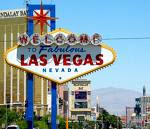












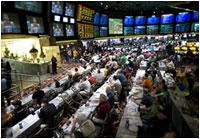

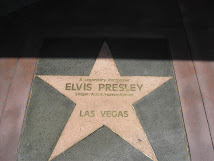










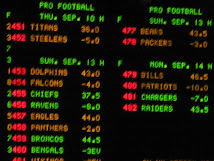
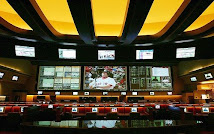
No comments:
Post a Comment